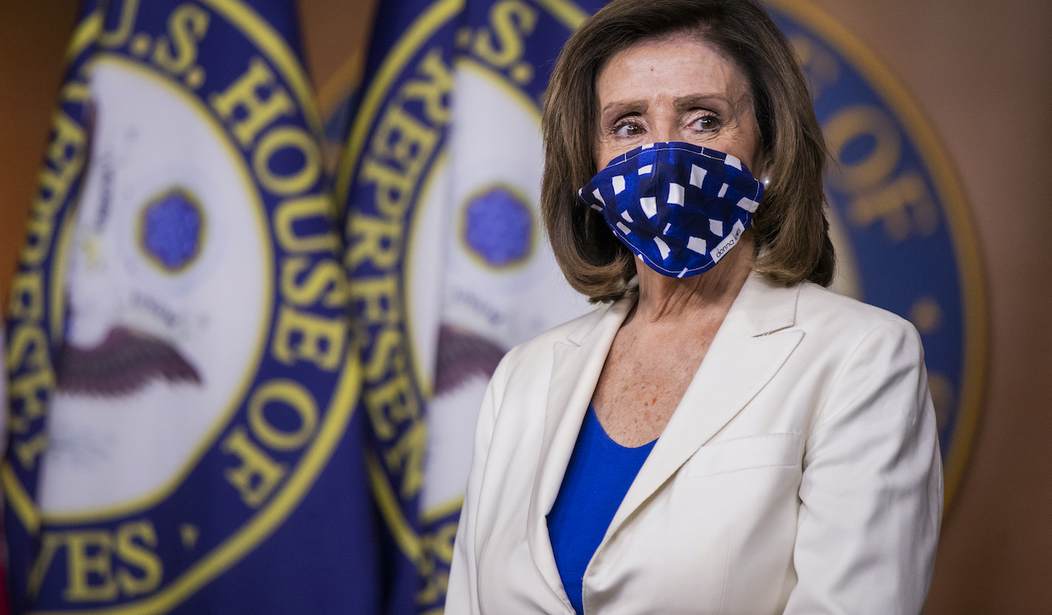Most movie-goers have understandably low expectations for sequels because, with very few exceptions, the sequels are never as good as the original. Federal legislation is no different, but that hasn’t stopped members of Congress from proposing spurious spin-offs to already-passed bills. Like a director that keeps rolling despite fans’ begging and pleading, House Speaker Nancy Pelosi (D-CA) is pushing for a sequel to the Coronavirus Aid, Relief, and Economic Security (CARES) Act. The second CARES Act, aka the Health and Economic Recovery Omnibus Emergency Solutions (HEROES) Act, would run roughshod over the original and bury taxpayers with even more debt without addressing the pandemic that continues to cripple the economy. Congressional leadership should look for new and innovative ideas to help contain the Coronavirus instead of doubling down on failed ideas that didn’t make the first cut. We’ve seen this movie before, and it isn’t a pretty picture for taxpayers.
There’s plenty to pick apart in Speaker Pelosi’s ludicrous legislation, but one particularly ill-advised idea is the proposed $25 billion bailout of the U.S. Postal Service (USPS). This bloated bailout figure is far more than what the agency estimates it is losing due to Coronavirus-related disruptions. According to the agency, COVID-19 turmoil will cause mail revenue to decline by $13 billion this year (but that figure may be closer to $6 billion). While this is no small sum, more than 80 percent of the agency’s revenue will remain intact. Furthermore, the USPS estimates in its financial documents that it has enough liquidity to last until at least May 2021. If Speaker Pelosi and her congressional allies were genuinely interested in averting USPS bankruptcy, they could extend borrowing authority conditioned on limiting operations (e.g. ending Saturday delivery, consolidating retail locations). But HEROES Act backers are less interested in Coronavirus relief than they are in providing a blank check for continued agency mismanagement. The USPS’ issues long preceded the pandemic with the agency losing an astounding $4.5 billion in the second quarter of 2020 (immediately before the pandemic). Taxpayers don’t need any screenplay exposition to see what would happen next if the agency gets a bailout. With a blank check from taxpayers, the USPS would continue dubious practices such as overpaying middle-mile contractors and inefficiently scheduling its employees.
Pelosi’s proposed panacea of red ink extends far beyond the USPS. The proposed legislation would also bail out states across the country to the tune of $500 billion, subsidizing the reckless pre-pandemic fiscal practices of states such as Connecticut and Illinois. In 2019, watchdog group Truth in Accounting found that these two states would need $51,800 and $52,600 respectively from each state taxpayer to pay outstanding obligations. But now, irresponsible state officials realize that they can recoup these dollars by bilking federal taxpayers from sea to shining sea. A bipartisan umbrella of states ranging from Tennessee to Oregon to Minnesota have managed their finances well and avoided plunging their residents in a sea of debt. But this fiscal prudence will all be for naught with an open-ended $500 billion bailout and an additional $375 billion for localities. There’s nothing wrong, of course, with helping states and localities deal with large, unanticipated COVID-related expenses. But, a blank check from taxpayers does nothing to advance fiscal responsibility.
Recommended
Current rules for Medicare and Medicaid reimbursements to hospitals are far too strict and punish states for relaxing onerous healthcare regulations. State-level “Certificate of Need” rules force hospitals to get bureaucrats’ permission before building new floors or expanding services to patients. Yet states keep these laws on the books, because repeal would jeopardize the flow of federal healthcare dollars under existing statute. If Speaker Pelosi really wanted to help states deal with the Coronavirus, she would get behind Rep. Dan Bishop’s (R-NC) push to repeal these needless federal restrictions.
Lawmakers across the political spectrum should focus on pandemic-related problems and reject reckless spending unrelated to the Coronavirus. On May 12, the Taxpayers Protection Alliance and 17 other organizations sent a letter to Congress urging a clean relief bill. Any sequel to the CARES Act must not be a replay of failed, reckless ideas that have nothing to do with the original bill.
Ross Marchand is the director of policy for the Taxpayers Protection Alliance.

























Join the conversation as a VIP Member